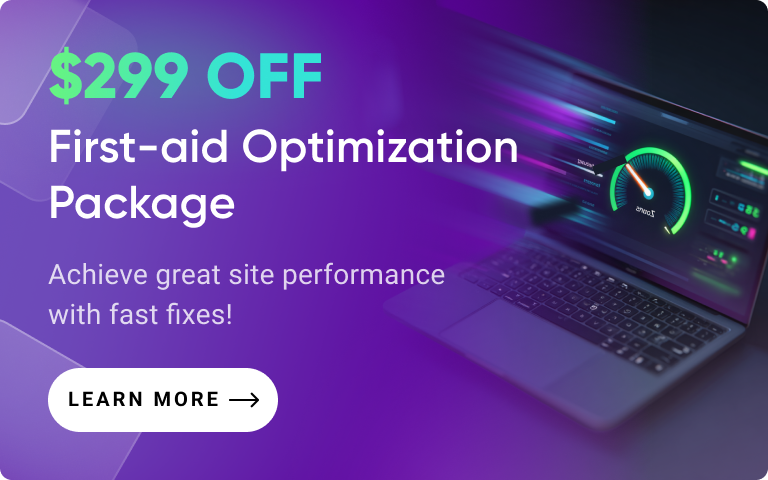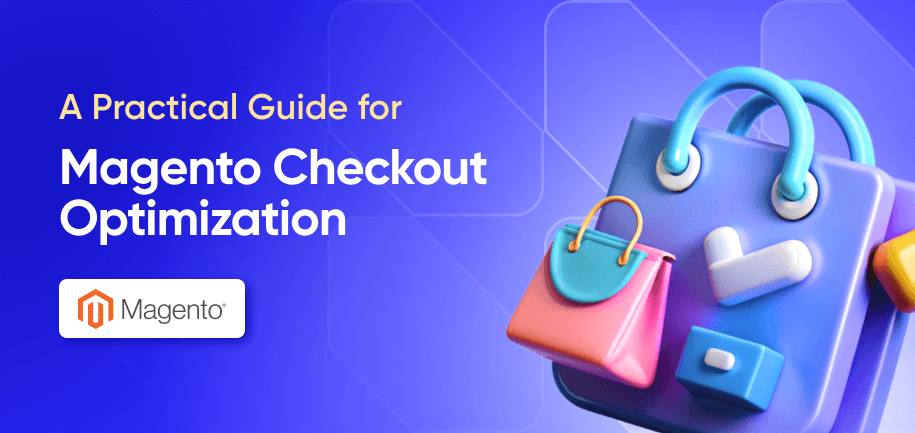Profitability is crucial for running a successful e-commerce business. However, understanding your e-commerce profit margins can be challenging with the extensive steps involved in creating and maintaining an online store. With a massive 90% of all e-commerce businesses failing within the first four months of launching, knowing everything there is to know about your current profitability is crucial to long-term success.
But is e-commerce profitable, and what is a good profit margin for online retail? This article will dive into industry benchmarks, financial insights, and professional strategies for maximizing your e-commerce profit margin and thriving like never before. Let’s get started!
What Are E-commerce Profit Margins?
You need to understand exactly what e-commerce profit margins entail for good profits. In actuality, there isn’t one specific number to understand your profit margins – you need to account for different types of margins, like net and gross profits.
A profit margin measures the degree to which an e-commerce business earns money. This number is the portion of an e-commerce company’s overall sales revenue that it keeps as a profit, determined after all other costs are subtracted. A company with a 40% profit margin would be earning $0.40 per every dollar of sales.
Two primary measures of a company’s profitability are its net profit margin and gross profit margin. A company’s net profit margin describes the profit it retains after subtracting operating costs and the cost of goods sold (COGS) from its revenue. In contrast, a company’s gross profit margin is the profit remaining after subtracting the COGS from revenue. Gross profit margin equals the company’s gross profit divided by its sales:
(Net Sales – Cost of Goods Sold) / Net Sales * 100%
The more money your company keeps from each sale, the higher your profit margin.
What is a Good Profit Margin for E-commerce?
Maintaining a healthy e-commerce gross margin is crucial to enhancing your store’s longevity. However, even a healthy profit margin isn’t always ideal for e-commerce businesses, and you’ll want to improve your profit margin significantly to guarantee long-term profitability. So, what is a good profit margin for retail businesses online, and what is a good net profit margin for retail?
According to Shopify, a 5% net profit margin is considered low, while 10% is considered average and 20% is high.
An ideal gross margin figure for e-commerce stores is 45.25%, meaning many e-commerce businesses are falling short of their profit margin goals. e-commerce profitability goes beyond the products and services you offer – it also includes your pricing strategies, a major component of financial success.
What is the Average Profit Margin on Retail?
Despite the need for higher e-commerce margins, the average e-commerce profit margin remains low for many retailers. According to Forrester, the average retail net margin falls between 2.8 and 3.5%, though this number increased to 5.9% during 2021. In 2022, the average net margin for retail businesses decreased again to 3.3%.
Gross profit margins for retail differ from net profit margins and largely depend on industry. For example, in 2018, the global gross profit margin for the beverages retail industry was 65.74%, while the average gross profit margin for businesses like sporting goods was only 41.46%.
Is E-commerce Profitable?
With the wide range of e-commerce profit margins, you might wonder: how profitable is e-commerce, and are e-commerce businesses profitable in general? The answer is that e-commerce profitability is possible – if you’re implementing the right strategies to maintain your business’s profitability.
During the third quarter of 2023, e-commerce sales accounted for a significant 15.6% of total sales in the United States, with $271.7 billion in sales generated from e-commerce stores. This number means there is plenty of room for success in the e-commerce industry. Your online store can succeed if you understand your profit margins.
How to Maximize Your E-commerce Profit Margin
Now that you understand what’s a good margin for retail, you can dive into advanced strategies to maximize your e-commerce profit margin and achieve long-term success and profitability. But what is a good retail profit margin, and how can professional tactics help you succeed in the e-commerce industry? Below are a few strategies to take your profitability to the next level.
Understand Your Most and Least Profitable Products
The first step to maximizing your e-commerce profit is understanding which products are most and least successful. Assess products with low-profit margins and determine whether the pricing and costs associated with creating these products are sustainable.
Carefully analyze your product lineup to determine which products contribute to better profit margins. You can also consider cross-selling opportunities to enhance your company’s profitability – package different products together to create higher-value customer offers.

Focus on Your High-Value Products
Once you’ve determined which products are most profitable for your business, it’s time to shift your attention to making the most of these offerings. Increasing the sales of your high-value, top-selling products will help you maximize your profits and increase your margins.
One option to emphasize your high-value products is to increase their stock availability and promote them as top recommendations for customers. Make a note on your website of which products are top sellers – this makes it likelier for customers to invest in your products, as it builds trust. During product promotion periods, emphasize these products and offer discounts and sales to attract more attention to your top sellers.
Reduce Your Operating Costs
Promoting e-commerce profitability isn’t just about maximizing sales for your top-selling products – it also requires attention to your current operating costs and strategies to optimize the amount spent on creating goods and services.
While lowering your operating costs might seem complicated, simple methods will help you achieve this goal. Determine your overhead costs, organize them from biggest to smallest, and find actionable ways to minimize each cost. Assess areas where you can downgrade your operations and save costs on your current production. Some areas to pay attention to include the following:
- Overproduced products that aren’t selling at a fast enough rate to justify the amount of products produced
- Product defects and how frequently defective products are sent to customers
- Transportation costs for customer deliveries
- Talent utilization and whether you’re making the most of your human resources
- Costly manual labor that can be streamlined via automation
- Excessive processing, including resources spent on packaging and processes that don’t add value to your business
Rethink Your Pricing Strategies
Pricing strategies can make or break your e-commerce margins. While increasing your prices is an easy way to improve your margins, it’s important to approach this step strategically to avoid alienating customers and pushing them toward your competitors.
Boosting sales requires considering different factors, like your industry, your range of products, and current economic conditions that could affect buyer interest. Conduct thorough market research to determine pricing strategies to help your organization become more profitable.
If you decide to increase your prices, the best option is to do so gradually. Assess products with higher customer demand and consider raising prices slightly, such as by a dollar, instead of implementing drastic changes. As you implement this strategy, continue researching customer responses and demand – this will help you understand if your price increases are turning customers away from your brand.
Say, you sell wooden furniture:
Retail cost for 1 chair: $165
COGS: $120
Profit: $45
Profit margin: ($165 - $120) / $165 * 100% = 27%
You then raise the price by $4.99.
Retail cost for 1 chair: $169.99
COGS: $120
Profit: $49.99
Profit margin: ($169.99 - $120) / $169.99 * 100% = 29.4%
Even a small difference of 2% can lead to a larger overall benefit.
Alternatively, you can try increasing your average order value. Review your ways of upselling products, maybe some of these you haven't tried yet:
- Recommend related products on product and checkout pages
- Cross-sell and upsell products
- Offer order least incentives, like “a 10% discount on orders over $100” or the least amount spent for free shipping
- Sell products in bundles or packages
- Segment customers to run personalized deals
Build Consumer Trust
No e-commerce business can remain successful without a certain level of consumer trust. Instilling trust in your customers is crucial for boosting conversion rates and generating consistent sales. Besides, this strategy can later help you focus on those 20% of customers that bring you 80% results.
Luckily, you can build consumer trust to enhance your store’s profitability in numerous ways. You can build trust and encourage shoppers to purchase your products in the following ways:
- Create accessible product information, providing thorough product descriptions for your offerings.
- Have a brand story available on your website where users can learn about your business and get a sense of your trustworthiness.
- Focus on your website’s design – you want to create a welcoming online store that makes a positive first impression on new customers.
- Provide proof of past customer satisfaction with your business by highlighting customer reviews and testimonials.
- A strong loyalty program can benefit your customers and guarantee you repeat purchases.
Optimize Your Digital Presence and Marketing Strategies
You can transform your e-commerce profit by improving your digital presence. Strategic digital marketing and a list of robust tools can increase the number of goods sold, improve brand visibility, and drive more traffic to your website – all factors that contribute to a successful online store.
Some ways you can enhance your digital presence include the following:
- Prioritize search engine optimization (SEO) strategies to optimize your website for search engines.
- Focus on email and social media marketing campaigns to improve customer relationships and showcase your products and services.
- Ensure your website design is accessible and easy to navigate.
- Target demographics most likely to benefit from your products or services, and focus on channels where this audience is most likely to interact with your brand.
Start Boosting Your E-commerce Margin!
Understanding how much your e-commerce business is worth and boosting your e-commerce profit margins is crucial to ensuring long-term success and sustainability for your business. You can succeed in the online retail industry by understanding your gross and net profit margins and implementing strategies to improve these metrics.

























